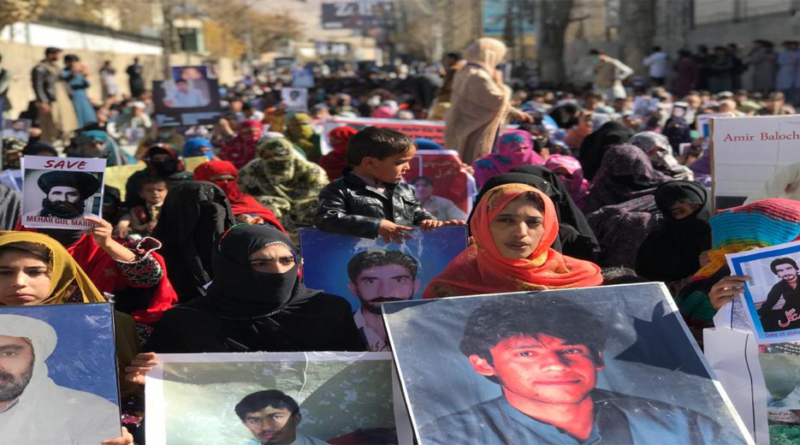Balochistan: The state of Human Rights 2018
Prologue:
The human rights situation worsened in Balochistan in 2018 despite the promises made by the ruling party during its pre-election campaigns to stop military operations and enforced disappearances.
The official narrative, which is focused on national security, tends to provide justification for the use of excessive force against civilians in Balochistan where security forces have been accused of serious human rights abuses, such as extrajudicial killings, enforced disappearances, incommunicado detention, torture and denial of legal rights.
All local remedies, mainly the police and the judiciary, have failed to address these issues often sighting helplessness as the main reason behind their silence.
Central government’s Commission on Enquiry of Enforced Disappearances has been blamed by the families of missing persons to have undermined the gravity of the issue and failed to make the perpetrators accountable.
Tensions between Baloch nationalist militants and military continued throughout the year 2018. The policies of the military to counter the militants and nationalist political groups led to intense civilian loss. Continued military operations forced thousands of villagers to migrate to safer places. In some case, security forces burnt entire villages forcing systematic migration of the indigenous people.
Progress on the conflict
In the early 2000’s, an insurgency was initiated by some Baloch separatist groups in reaction to the construction of deep seaport in Balochistan’s port city of Gwadar. The project is part of China’s multibillion-dollar China-Pakistan Economic Corridor, a controversial project which the Baloch fear will transform them into a minority on their homeland.
Hundreds of Baloch leaders and political activists, who opposed the project, have either been killed or forcibly disappeared by the military.
In the meantime, Baloch militants have escalated attacks against Chinese assets inside Pakistan in recent months in order to force the giant regional power out of Balochistan.
In 2018, militants belonging to the Baloch Liberation Army (BLA) initiated a series of suicide attacks on Chinese nationals and installations.
BLA militants committed a suicide strike against Chinese engineers in the Noshki area of Balochistan in August 2018. Later in the same year, in November, three suicide attackers of the group struck the Chinese consulate in Karachi. In May 2019, four attacker took siege of the five-star Pearl Continental Hotel in Gwadar and later claimed to have killed dozens of Chinese and Pakistan military officials. However, Pakistan claimed that no foreign or military officials were present in the hotel and that only a security guard was killed.
In reaction, the Pakistan military escalated military operations in Balochistan, with more people being forcibly disappeared and extrajudicially killed. More than eight hundred persons were forcibly disappeared in Kech, Gwadar, Awaran, Kharan, Qalat, Panjgur and Khuzdar regions of Balochistan during the year 2018.
Media blackout/inaccessibility
Balochistan remains a black hole for the media, as foreign journalists are given little access, if any, to Balochistan’s affairs and local media groups adopt self-censorship due to fear of retribution from the powerful military. The situation remained gloomy in 2018 as well.
Also, internet remained suspended in most parts of Balochistan during the year, which made it more difficult for human rights groups like ourselves to monitor the situation from the ground. We could get partial reports from only six, out of thirty-two, districts of Balochistan.
Enforced disappearances
The International Convention for the Protection of All Persons from Enforced Disappearance came into effect in 2010. It aims to prevent enforced disappearances, uncover the truth when they do happen and make sure survivors and victims’ families receive justice, truth and reparation.
Its Article 1 clearly states that;
1. No one shall be subjected to enforced disappearance.
2. No exceptional circumstances whatsoever, whether a state of war or a threat of war, internal political instability or any other public emergency, may be invoked as a justification for enforced disappearance.
Enforced disappearance is worst form of human rights violations. It violates a range of human rights and not only generate the feeling of fear and insecurity among relatives and friends but also affects society as a whole. Moreover, it causes slow mental anguish to families and they remain in constant pain until the victim was released or his body was recovered from a desolated area.
Enforced disappearances and arbitrary detention has been commonly practiced by state forces in Balochistan, resulting in the abduction of more than 20,000 people, for over a decade now.
The government has denied the involvement of security forces in enforced disappearances and extrajudicial killings but independent human rights groups and journalists have continuously blamed the military of perpetrating these crimes to stifle the nationalist insurgency.
Some 800 persons were subjected to enforced disappearance in the year. Many abducted, tortured and released, who are not the same persons, living under trauma.
Forcibly disappeared persons include:
Noor Malik, Haseena and Sameena:

On July 3, 2018, forces whisked away Allah Bakhsh 10 years old son Zameer Allah Bakhsh from Panjgur with his cousin Daulat. On the same day, military raided his house in Mashkay Awaran and took away his cattle. His wife Noor Malik and two daughters, Haseena, 20, and Sameena, 18, were taken away in another raid on the same house on 22 July, two days before the general elections. Since then their whereabouts are unknown.
Ishaq Hussain:
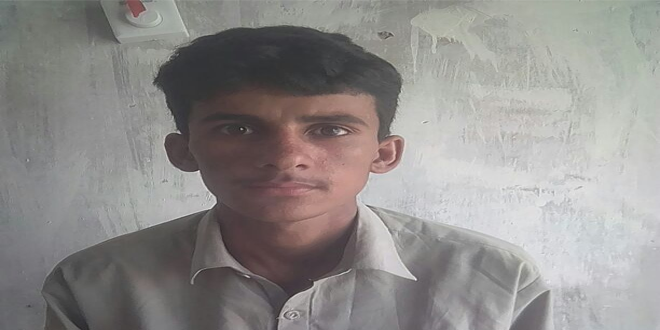
On October 19, 2018, Frontier Corps carried out a military operation in Jamak area of Pidrak in Kech district and forcibly disappeared six civilians. Later, five abductees were later released whereas, Ishaq Hussain a teenage boy is missing since the
Shabir Eid Mohammad and Hanif Mohammad Hassan:
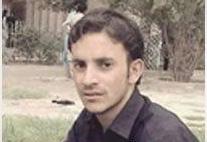
Hanif Mohammad Hassan 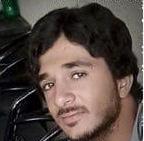
Shabir Eid Mohammad
Shabir and Hanif were graduation students and resident of Greshag district Khuzdar. They went to Panjgur for their graduation examinations where they stayed at Mulla Rahmdil home in Sordo Panjgur. On October 29, 2018, frontier corps and intelligence officials raided the house of Mulla Rahmdil and forcibly disappeared both. Since then no one has heard from them.
Jeand and Hasnain Baloch:
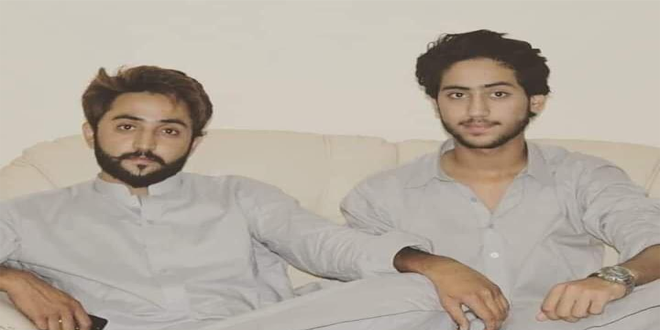
Jeand Baloch was Senior Joint Secretary of Baloch Students Organization (BSO). Jeand was a student of Sociology department in the Bahauddin Zakariya University (BZU). He was abducted along with his father Qayum Baloch and younger brother Hasnain Baloch on 30 November 2018 at around 3:00 am from their residence in Quetta, Balochistan by security forces. Later, Karachi Police nominate Hasnain in a fake case and claimed, during a press brief, that he was arrested on January 11, 2019 from Karachi and presented him as a facilitator of attackers who attacked Chinese Embassy in Karachi.
Qayum Baloch was released after 2 days of his abduction while whereabouts of Jeand and Hasnain remain unknown.
Amin Baloch:
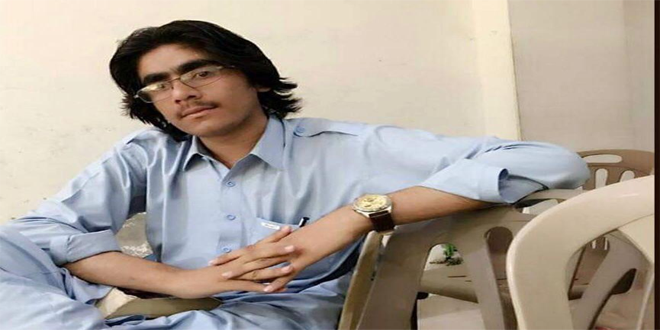
Amin Baloch is a resident of Awaran and a medical student in Bolan Medical College Quetta. On November 29, intelligence officials raided his apartment in Killi Ibrahim in Quetta and forcibly disappeared him. His whereabouts are unknown since then.
Extrajudicial killings
Over 470 persons were reportedly killed in Awaran, Bolan, Dera Bugti, Kalat, Kech, Kharan, Khuzdar, Kohlu, Lasbela, Mastung, Nushki, Panjgur, Quetta, Sibbi and Washuk districts of Balochistan, whereas the other 19 districts remained inaccessible.
In 2018, 93 cases of target killing and/or killed by firing and six cases of fake encounters were compiled by us. Some 22 women fell victim to such abuses while 29 tortured bodies were found dumped. Six people died from indiscriminate shelling and bombardment of security forces. Ten civilians who had been previously reported missing were killed by the security forces and six custodial killings were confirmed during the year.
Some of the cases which our volunteers confirmed are listed below:
Noor Ahmed (master):
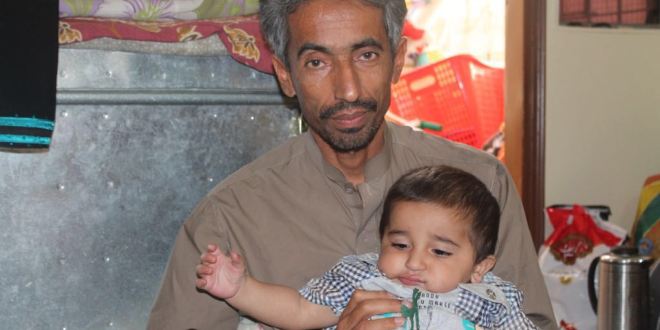
Noor Ahmed, a schoolteacher by profession, was extrajudicially killed and his dead body dumped in Meerabad area of Tump district Kech, Balochistan, on 2nd January 2018.
He is a resident of Pollábád, Tump district Kech, and is the uncle of Karima Baloch, ex-chairperson of BSO-Azad, who is in exile in Canada for last three years.
He was abducted on 28 July 2016, by personnel of Frontier Corps, a paramilitary force blamed for the enforced disappearance and extrajudicial killing of the political activists, educationists, and intellectuals in Balochistan.
There were around a dozen other passengers in the vehicle from which he was taken away. When their vehicle reached at Ghinna check post, around 40 KM away from Turbat city while going back home from Turbat, the vehicle was stopped by security forces and everyone was asked for the NIC (National Identity Cards). He was dragged out and taken away after the confirmation of his identity.
Maher Ali:
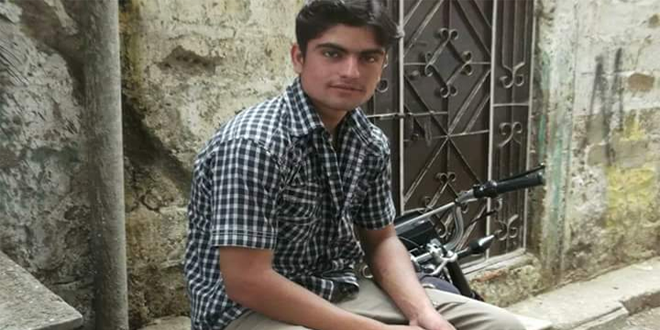
Sindh Rangers killed Mr, Maher Ali, an IDP of Balochistan, who was living in Karachi, the capital city of Sindh, on 13 March 2018 in a fake encounter.
Mr. Maher was a resident of district Awaran in Balochistan. Awaran is perhaps the area where most military operations occur with more intensity than other areas of Balochistan. In many operations, military uses gunship helicopters and fire mortars on mountainous villages in Awaran. Maher Ali and his family left their native village and lived in Karachi after his father Mayar was killed in their native village in 2006. Maher stopped his education and started working to feed his family.
His mother said in a video statement that Sindh Rangers picked him up from the house on 14 November 2016. “They said they will release him after some investigations. When it took longer, we filed a case in Sindh High Court. We appealed to the authorities through media, court and all means we could”, says Ms. Mah Bibi, the mother of Maher Ali.
Azim Dad:
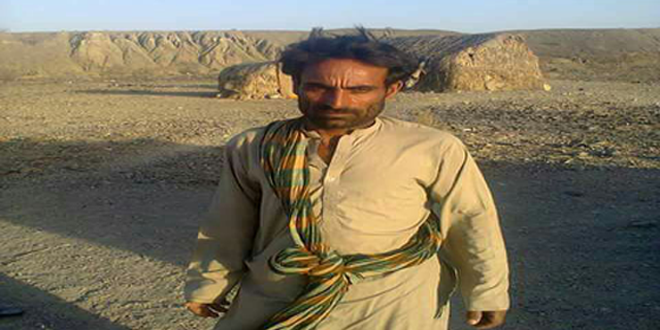
Azim Dad, resident of Malar, district Awaran, was found dumped on a roadside in Hub Chowki, district Lasbella, on 05 May 2018. He was abducted by security forces on 25 April 2016 from Jinnah International Airport Karachi.
Ghulam Qadir Dilshad and Akram Muhammad Issa:
Ghulam Qadir Dilshad and Akram Muhammad Issa died in the helicopter shelling during a military operation in Soler, district Washuk on March 24.
Rafiq Rozi:
Rafiq s/o Rozi mutilated body was recovered from Mochko, Karachi. He was abducted 2 years ago by security forces. His body bore several marks of torture.
Sanaullah Ghulam Qadir:
The mutilated body of Sanaullah s/o Ghulam Qadir, a resident of Jhal Magsi was recovered from Mastung. The cause of his death is yet to be found.
Battey Naik Muhammad:
The mutilated body of Battey s/o Naik Muhammad, the resident of Jhao, Awaran was recovered on January 4, 2018. Battey was kidnapped on December 29, 2017, along with his father, Naik Muhammad. His father is still in the custody of forces.
Nazgul:
A five-month pregnant woman, Ms. Nazgul taken away by the Pakistan military from Besima, Balochistan, died in custody of security forces on 6 April 2018.
Paramilitary Frontier Corps picked up 19 locals, including women and children, in the Besima’s Raghai area in December 2017.
They had been initially taken to the military camp in Mashkay, but later handed over to the military-backed tribal chief, Ali Haider Mohammed Hasni, who kept them hostage at a property owned by him.
Ali Haider’s guards forced Nazgul and other prisoners to work as household servants. Guards refused to call medical help as her symptoms grew fatal.
Nazgul Mohammad Iqbal was pregnant when taken into custody. She died on 6 April 2018, after showing symptoms of pregnancy-related complications.
Mohammad Bakhsh Kalmali
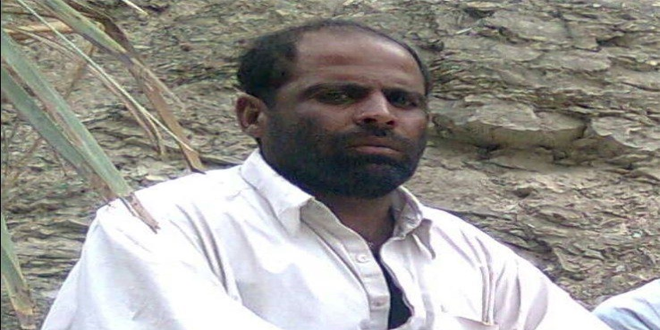
On 18 August 2018, a mutilated dead body was found dumped. Later on, the deceased was identified as Mohammad Bakhsh Kalmali who was forcefully disappeared by the forces in January 2015. His whereabouts remained unknown until his dead body was found.
Babu Mehrab
The mutilated dead body of Babu Mehrab was found dumped in a deserted area in Kulanch district Gwadar on 13 August. He was abducted by security forces two days earlier on 11 August.
Nizam Pir Mohammad Sasoli and Sher Jan
Nizam Pir Mohammad Sasoli was abducted by security forces from Noshki, along with ten other persons on 31 August 2018. He was then killed in a staged fake encounter by the forces on 16 September. Security forces claimed to have killed him during a battle between the military and the terrorists. In another incident on 28 September, a civilian was killed by the explosion of a land mine in Awaran, Balochistan. The military has escalated brutal operations in the area and concealed land mines all over the area.
Wahid Umer:
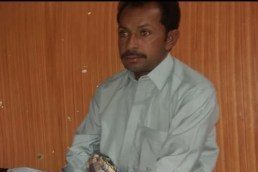
Wahid Umer. Photo: Ashoob News 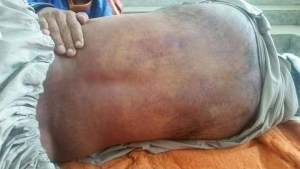
Wahid Umer’s tortured body. Photo: Ashoob News
Wahid Umer, a resident of Bal Nigwar, district Kech was abducted by forces on September 21, 2018, during a military operation. He was subjected to inhuman torture during his detention. Afterward, on October 13, 2018, forces shifted him to the hospital in Turbat where he died. His body bore signs of severe torture.
Ali Dost Jan Mohammad:
On October 14, mutilated body of Ali Dost Jan Mohammad was recovered from Sordo Panjgur. He was identified through his National Identity Card (NIC) placed near his body. Ali Dost was from Salari Gichk and was abducted by state-sponsored death squads on June 6, 2017. He remained disappeared until his body was recovered from Panjgur.
Dilawar Shahmir:
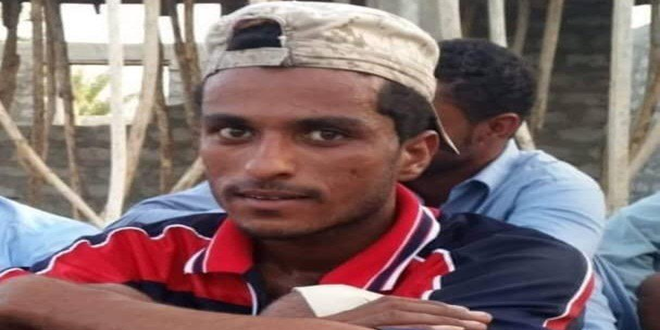
Dilawar Shahmir was abducted by security forces and Death Squad fanatics from a volleyball ground in his hometown of Konshkalat, Tump district Kech on 26th November 2018. He was then handed over to his family with injuries sustained during extreme torture on 04th December 2018. His family members tried to rush him to a hospital but Dilawar succumbed to his injuries and died before reaching the hospital.
Suicide bomb attacks:
A suicide bomber detonated his explosives at an election rally of the Balochistan Awami Party (BAP) in the southwestern town of Drigarh, about 35 km south of the provincial capital Quetta, 0n 13 July 2018. 157 persons were killed and more than 200 were injured in the suicide attack. 31 persons were killed and more than 50 injured in another blast on a polling station on the day of election. Both the attacks were claimed by the Islamic states (ISIS).
Collective punishment:
Enforced disappearances was started with abduction of political workers, and then it was extended to their sympathizers and gradually reached the families of political activists.
On December 2017, when twenty-four persons were picked up by security forces during a military operation, in Raghay area of district Washuk and kept in military camp in Mashkay Awaran for a couple of weeks and then shifted to a private castle, which military uses as detention center. It is in the midst of the population but heavily guarded by private militia.
The news broke when a five-month pregnant woman, Ms. Naz Gul died[6] due to denial of medical assistance. She was one among almost twenty-four abductees of Raghay. She was forced, as all the prisoners were, to work in the kitchen where all abductees prepared food for the private militia, their keepers. During hard physical work and restlessness, she got sick and was not given any medical assistance.
Since then it became a pattern. Military would pick up the family members of a political activist during the raids and forcibly disappear them for days, sometimes for months.
Later in July, the security forces abducted an entire family from Mashkay area of district Awaran in Balochistan. The family was identified as of Mr. Allah Bakhsh, a political opponent whose views on Balochistan’s political and economic issues differ from that of Military’s imposed National Interests. On 3 July 2018, the security forces raided his house in Alangi area of Mashkay and looted all the valuables from the home. On the same day, forces abducted his 10 years old son Zamir and Zamir’s cousin Daulat from Panjgur. Later on, on 22 July the forces raided the house again and picked up his wife, Noor Malik along with two young daughters, Sameena and Haseena. Nothing is heard from the family so far. The abduction took place in front of the villagers. The military had asked the villagers to convey their message to Mr. Allah Bakhsh that he should come and report to the military in the main army camp and in case of failure, his family would be killed.

